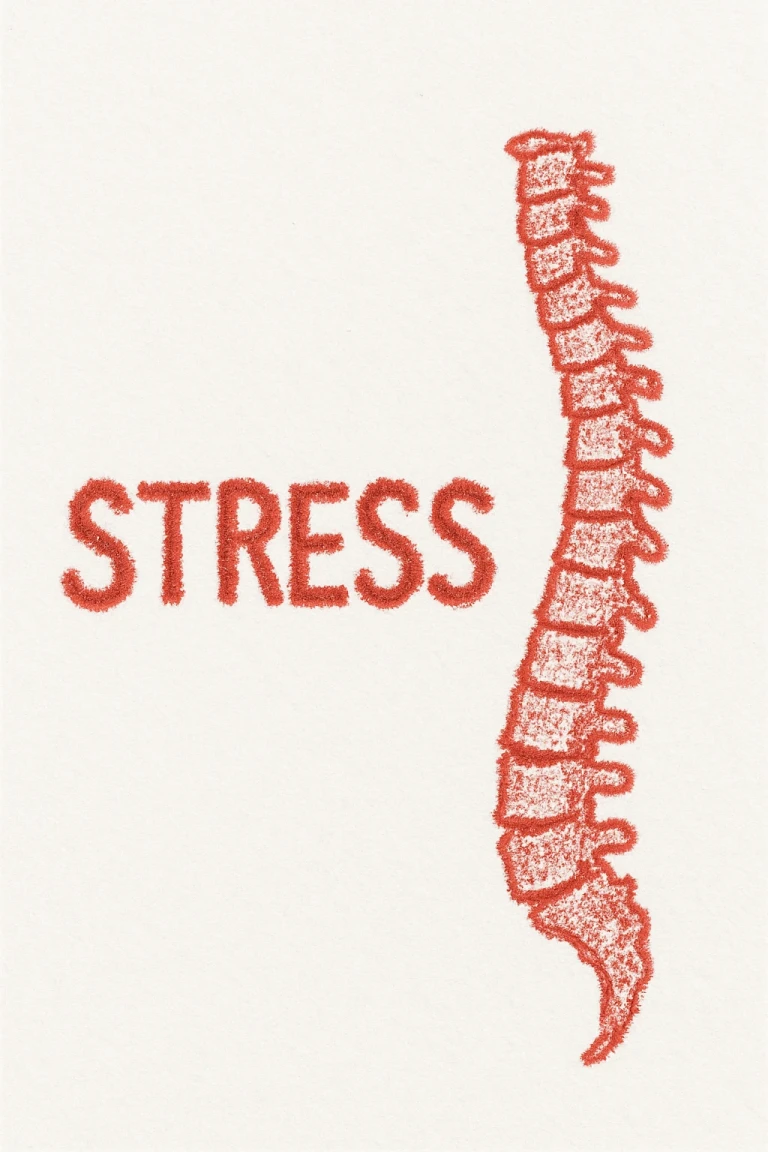
Subluxation is a term often used in chiropractic care to describe a misalignment or partial dislocation of the vertebrae. While it might seem like a minor issue, subluxation can have a significant impact on your overall health. Think of your spine as the information highway of your body, with the nervous system acting as the traffic controller. When a subluxation occurs, it's like a traffic jam on this crucial pathway, interfering with the communication between your brain and body.
Understanding Subluxation
The spine houses and protects the spinal cord, a vital part of the central nervous system that transmits signals between the brain and the rest of the body. A subluxation disrupts this delicate balance, causing pressure on the nerves and leading to impaired function. This misalignment can result from various factors, including poor posture, injuries, repetitive stress, and even emotional stress.
When a subluxation occurs, the body's ability to communicate effectively is compromised. Just like a traffic jam slows down or halts the flow of vehicles, a subluxation obstructs the smooth transmission of nerve impulses. This disruption can manifest in various ways, affecting different parts of the body and overall health.
The Fight or Flight Response
One of the most significant impacts of subluxation is its effect on the brain's fight-or-flight response. This response is a natural reaction to stress, preparing the body to confront or flee a threat. However, when subluxation causes constant interference in nerve communication, the brain can remain in a perpetual state of fight or flight. This chronic stress response leads to the buildup of tension and stress in the body, negatively impacting physical and mental health.
When the nervous system is constantly on high alert, it can result in symptoms such as increased heart rate, heightened blood pressure, and muscle tension. Over time, this can contribute to more severe health issues, including anxiety, insomnia, digestive problems, and weakened immune function.
The Importance of a Healthy Nervous System
The nervous system is the master regulatory system of the body, controlling and coordinating all bodily functions. From regulating heartbeat and breathing to controlling movements and sensory perceptions, the nervous system ensures that the body operates harmoniously. For optimal health and well-being, the nervous system must function without interference.
A healthy nervous system allows for clear and efficient communication between the brain and the rest of the body. This ensures that the body can respond appropriately to various stimuli, maintain homeostasis, and promote overall wellness. Conversely, any interference in this system, such as that caused by subluxation, can lead to health problems.
How Chiropractic Care Can Help
Chiropractic care focuses on detecting and correcting subluxations to restore proper alignment and function to the spine. By doing so, chiropractors aim to remove the interference in the nervous system, allowing for better communication between the brain and body.
During a chiropractic adjustment, a chiropractor uses specific techniques to apply gentle, controlled force to the affected vertebrae. This helps to realign the spine, reduce nerve pressure, and improve overall nervous system function. Regular chiropractic care can help to prevent the recurrence of subluxations, promoting long-term health and wellness.
Benefits of Chiropractic Care:
1. Pain Relief: Chiropractic adjustments can alleviate pain caused by subluxations, such as back pain, neck pain, and headaches.
2. Improved Mobility: Restoring proper alignment can enhance joint mobility and flexibility.
3. Stress Reduction: By addressing the root cause of chronic stress, chiropractic care can help reduce tension and promote relaxation.
4. Enhanced Immune Function: A well-functioning nervous system supports a strong immune system, helping the body to fight off illnesses more effectively.
5. Overall Well-Being: Regular chiropractic care can improve sleep quality, boost energy levels, and enhance overall quality of life.
The Science Behind Chiropractic Care
Numerous studies support the effectiveness of chiropractic care in addressing subluxations and improving health. Research published in the Journal of Manipulative and Physiological Therapeutics (JMPT) has shown that chiropractic adjustments can lead to significant improvements in pain relief and functional outcomes. Additionally, studies have demonstrated the positive impact of chiropractic care on nervous system function, stress reduction, and overall health.
For example, a study conducted by the International Journal of Neuroscience found that chiropractic adjustments led to a significant reduction in cortisol levels, a key indicator of stress. Another study published in the Journal of Chiropractic Medicine reported that patients receiving chiropractic care experienced improved immune function, highlighting the broader health benefits of addressing subluxations.
Integrating Chiropractic Care into Your Wellness Routine
To maintain a healthy nervous system and overall well-being, consider incorporating chiropractic care into your wellness routine. Regular visits to a chiropractor can help to detect and correct subluxations early, preventing them from causing more significant health issues. Additionally, chiropractic care can complement other healthy lifestyle practices, such as regular exercise, a balanced diet, and stress management techniques.
What Research Shows About Chiropractic
Tips for Maintaining Spinal Health:
1. Practice Good Posture: Be mindful of your posture while sitting, standing, and sleeping to prevent undue stress on your spine.
2. Stay Active: Engage in regular physical activity to strengthen your muscles and support spinal health.
3. Manage Stress: Incorporate stress-reducing activities into your daily routine, such as yoga, meditation, or deep breathing exercises.
4. Maintain a Healthy Diet: Consume a balanced diet rich in essential nutrients to support overall health and wellness.
5. Stay Hydrated: Drink plenty of water to keep your body hydrated and support optimal function.
Conclusion
Subluxation can significantly interfere with the communication between your brain and body, acting like a traffic jam on the information highway. This interference can leave your brain in a constant fight or flight mode, leading to stress and tension buildup. For overall well-being, it's crucial for the nervous system, the master regulatory system, to function optimally without such interference.
Chiropractic care offers a natural and effective solution to address subluxations and promote better health. By restoring proper alignment and function to the spine, chiropractic adjustments can enhance nervous system function, reduce stress, and improve overall well-being. Integrate chiropractic care into your wellness routine to support a healthy nervous system and enjoy the numerous benefits it offers.







Leave a comment